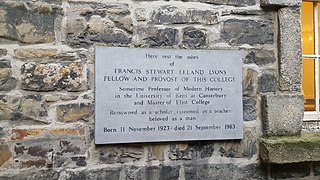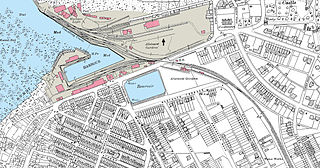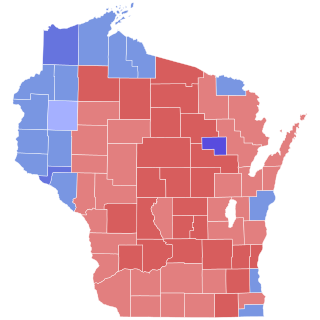Electorate, nominations and rules
The death of Princess Marina came suddenly, less than four years after the University's creation, and no formal process had been developed for selecting a new Chancellor.
The relevant Statute is, in fact, rather unhelpful about any details, merely saying that the appointment is to be made by the Court on the nomination of the Council after consultation with the Senate. [3]
Although in theory a Chancellor could have been appointed in the same manner as the Vice-Chancellor, growing demands for student participation in the running of universities and a belief that the Chancellor should represent the entire University led to the Council and Senate agreeing to a direct election by all students, monthly-paid staff and members of the Council. [4]
Because of concerns that a frivolous candidate might be elected, a complex system of nominations was agreed:
- All members of the electorate could nominate, but nominations would initially remain confidential
- A joint committee of six members nominated by the Council, six members nominated by the Senate and six members elected by the students at large would consider the nominations
- A short-list would be drawn up of those who received the support of at least fourteen members of the committee (thus requiring support in all three sections of the membership) and who were not objected to by more than four members (thus allowing each section as a whole a veto).
- Candidates on the short-list would be asked to indicate their assent to taking part in the election.
- Only then would the remaining names be made public.
Voting was to be by means of the alternative vote. [5]
The process was not begun until October 1969. The joint committee was initially chaired by Sydney Irving, Chairman of Ways and Means of the House of Commons. [6]

Francis Stewart Leland Lyons was an Irish historian and academic who served as the 40th Provost of Trinity College Dublin from 1974 to 1981.

The University of Kent is a semi-collegiate public research university based in Kent, United Kingdom. The university was granted its royal charter on 4 January 1965 and the following year Princess Marina, Duchess of Kent, was formally installed as the first Chancellor.

Joseph Grimond, Baron Grimond, was a British politician, leader of the Liberal Party for eleven years from 1956 to 1967 and again briefly on an interim basis in 1976.
The 1922 Committee, formally known as the Conservative Private Members' Committee, or sometimes simply the 22, is the parliamentary group of the Conservative Party in the British House of Commons. The committee, consisting of all Conservative backbench Members of Parliament (MPs), meets weekly while Parliament is in session and provides a way for backbenchers to co-ordinate and discuss their views independently of frontbenchers. Its executive membership and officers are by consensus limited to backbench MPs; however, since 2010, frontbench Conservative MPs have an open invitation to attend meetings.

John Goodwin Tower was an American politician and military veteran who represented Texas in the United States Senate from 1961 to 1985. He was the first Republican elected to the U.S. Senate from Texas since Reconstruction. Tower is known for leading the Tower Commission, which investigated the Iran-Contra Affair in the Reagan administration.

Kent Ronald Hance is an American politician and lawyer who is the former Chancellor of the Texas Tech University System. In his role, he oversaw Texas Tech University, Texas Tech University Health Sciences Center and Angelo State University in San Angelo, Texas. He is also a lobbyist and lawyer. Hance is the only person to defeat future President George W. Bush and became a Democratic member of the United States House of Representatives from West Texas, having served from 1979 to 1985. After his congressional service, he switched to the Republican Party and in both 1986 and 1990 ran for governor of Texas, losing in the primary election.

The 39th Canadian Parliament was in session from April 3, 2006 until September 7, 2008. The membership was set by the 2006 federal election on January 23, 2006, and it changed only somewhat due to resignations and by-elections. The Parliament was dissolved on September 7, 2008, with an election to determine the membership of the 40th Parliament occurring on October 14, 2008.

Evan Roderic Bowen QC was a Welsh lawyer and Liberal Party politician.

The Canterbury and Whitstable Railway, sometimes referred to colloquially as the "Crab and Winkle Line", was an early British railway that opened in 1830 between Canterbury and Whitstable in the county of Kent, England.
Rutherford College is the second oldest college of the University of Kent. It is located on the university's Canterbury campus and was established in 1966.

Darwin College is the fourth-oldest college of the University of Kent, an English higher education institution in the United Kingdom. It was opened in 1970.
Keynes College is the third-oldest college of the University of Kent. It was established in 1968.
Eliot College is the oldest college of the University of Kent. It was established in 1965, the same year the university opened.
The Radical Reform Group was a pressure group inside the Liberal Party, set up in 1952 to campaign for social liberal and Keynesian economic approaches. According to Andrew Gamble, the Radical Reform Group believed that 'the task of Liberals was not to retreat from Social Liberalism but to propose ways in which the institutions and policies of the Welfare State and the managed economy could be improved and strengthened.'
The 1970 South Ayrshire by-election of 19 March 1970 was held after the death of Labour Member of Parliament (MP) Emrys Hughes on 18 October 1969. The seat was retained by the Labour Party.

Canterbury Christ Church University (CCCU) is a public research university located in Canterbury, Kent, England. Founded as a Church of England college for teacher training in 1962, it was granted university status in 2005.

The 1978 Wisconsin gubernatorial election was held on November 7, 1978. Republican Lee S. Dreyfus won the election with 54% of the vote, winning his first term as Governor of Wisconsin and defeating incumbent Democrat Martin J. Schreiber. Bob Kasten unsuccessfully sought the Republican nomination.

Laura Miranda Grimond, Baroness Grimond was a British Liberal Party politician, and the wife of party leader Jo Grimond.
Maurice John Crawley Vile is a British political scientist. His main areas of interest are constitutional theory, federalism, the separation of powers, American government and politics.
This page is based on this
Wikipedia article Text is available under the
CC BY-SA 4.0 license; additional terms may apply.
Images, videos and audio are available under their respective licenses.












